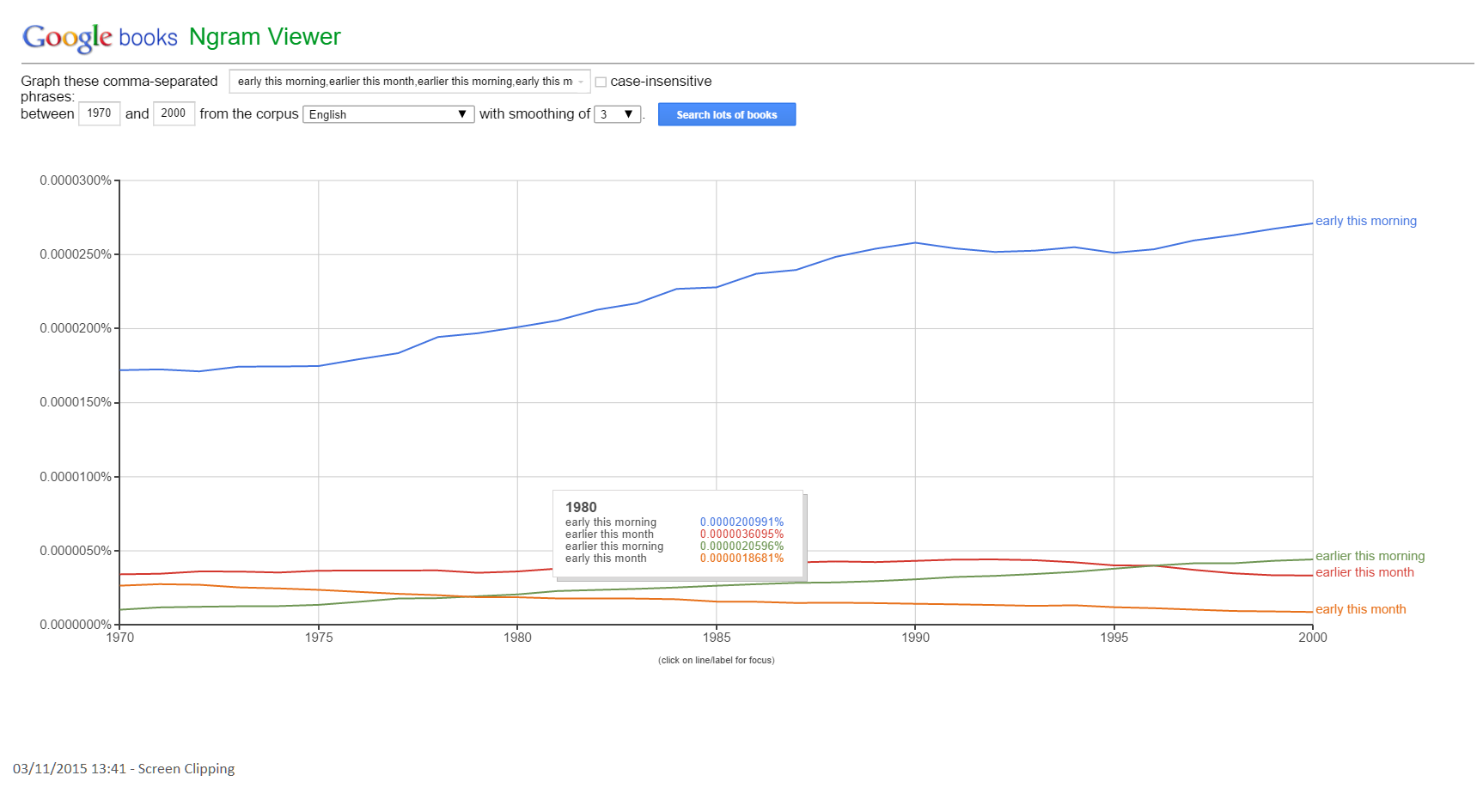Part 1 of the question
The questioner says:
While I was reading some various text, below two things came up over
and over like them in a rule.
Early this morning Earlier this month
First of all let us examine the claim quantitatively.
Google ngram: early this morning,earlier this month,earlier this morning,early this month

By examining the graph there does seem to be some validity to the 'rule'.
'early this morning' appears roughly 5 times as often as 'earlier this morning'.
'earlier this month' appears roughly 4 times as often as 'early this month'.
Suggested explanation
A thoroughly researched answer would take many hours and involve the analysis of a great deal of text. Instead I'll guess.
I believe that the explanation simply relates to what we are most likely to talk about.
Early/earlier this morning
If I speak to someone during the day about my morning exploits, I may be talking (a) during the morning (b) during the afternoon (c) during the evening or (e) at night.
Only in the first case does it usually make sense to talk about things that happened 'earlier this morning'. In the other cases we would be more likely to discuss what happened 'early this morning'. Thus there are simply more occasions during a day when the latter is appropriate. (Note that this explanation relates to Hot Licks' answer and suffers from some of the same problems)
Early/earlier this month
In this case a month is not divided into arbitrary categories such as month-morning, month-afternoon etc. So when you are in a month, any story you relate refers to 'earlier'.
Note I do not claim this as an authoritative answer. It is simply a hypothesis.
Part 2 of the question
if "early" and "earlier" were exchanged, are those still correct and
are the meanings same as before?
Early this moring = earlier this morning? Earlier this month = early
this month?
The simple answer is that you can exchange the words and the phrases remain grammatically correct.
As to whether the meanings are the same: Without context it is difficult to say. On the face of it the meanings are different for the same reason that 'big' and 'bigger' are different words.
However English is a context dependent language so it is possible that a particular context could cause the fragments to be equivalent.

